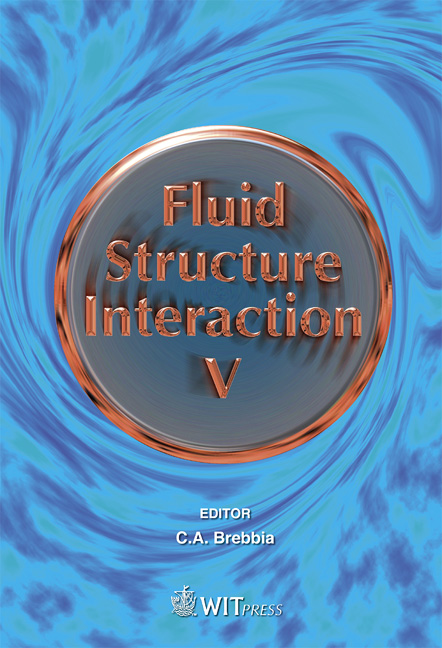A Singular Value Decomposition Based Generalized Finite Difference Method For Fluid Solid Interaction Problems
Price
Free (open access)
Transaction
Volume
105
Pages
10
Page Range
25 - 34
Published
2009
Size
301 kb
Paper DOI
10.2495/FSI090031
Copyright
WIT Press
Author(s)
P. Yu, K. S. Yeo, X. Y. Wang & S. J. Ang
Abstract
A hybrid meshfree-Cartesian grid method is proposed for simulating three dimensional fluid-solid interaction (FSI) problems involving rigid bodies with large boundary motions. The rigid body is embedded and enveloped by a cloud of mesh-free nodes, which convect with the motion of the body against a background of Cartesian nodes. Spatial discretization is accomplished by the combination of a Generalized Finite Difference (GFD) method and conventional finite difference (FD) method applied to the meshfree and Cartesian nodes respectively. Error minimization in GFD is carried out by singular value decomposition (SVD). A time-implicit iterative procedure is employed to compute the new/evolving position of the immersed bodies together with the dynamically coupled solutions of the flow field and bodies. The present method is applied to simulate the FSI problems of freely falling bodies in quiescent flow and freely rotating bodies in shear flow. The good agreement with published results validates the ability of the present hybrid meshfree-Cartesian grid scheme for solving FSI problems in 3D. Keywords: fluid-solid interaction, generalized finite difference method, singular value decomposition, projection method. 1 Introduction Many flows of practical interest in engineering and bioengineering involve fluidsolid interaction (FSI). Typical examples include the vibration of bridges and buildings to winds, the flutter of aircraft wings, the flow of blood through
Keywords
fluid-solid interaction, generalized finite difference method, singular value decomposition, projection method.





